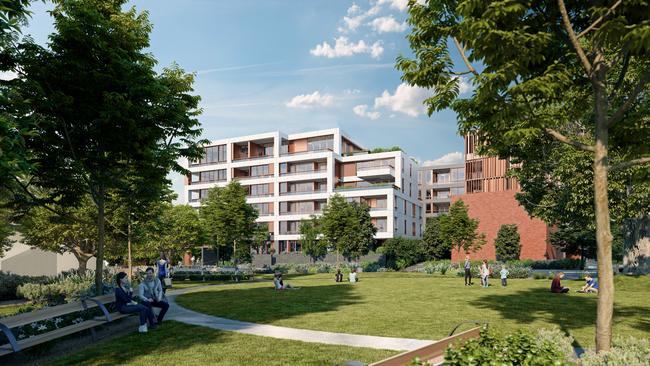Essential worker lock-out of city properties costs nation $64bn
The financial hit from long commutes is hurting tenants, communities and the economy to the staggering tune of $64bn.

The dire shortage of rental accommodation across Australia is hitting essential workers who are unable to live near their jobs, causing the national economy to miss out on $64bn if they were able t0 live closer, according to a new study.
Major superannuation funds and property developers are attempting to address the crisis through building more affordable housing around the country but have called for more concessions to kick-start the sector.
The move comes amid the prospect of further rental rises in key city locations and the need for more accommodation to house an expected surge in immigration.
The squeeze is hitting the 1.4 million essential workers living in Australia’s capital cities as rents continued to rise in the September quarter, with prices for inner city apartments outpacing houses in the capital cities, according to researcher PropTrack.
The failure to provide affordable housing in capital cities close to where nurses, teachers and police officers work, was siphoning from a potential $64b boon that could be generated from associated individual, employer and community benefits, an independent study by financial services firm EY said.
It was commissioned by Aware Super, which has a growing essential worker housing program focused on properties on the east coast.

The modelling found an essential worker in the scheme was able to live an average of nine kilometres closer to their workplace, cutting commuting time, and allowing for an additional $45,500 in benefits for employers, communities and tenants.
The Aware program gives essential workers access to quality rental housing, near essential and social infrastructure, aimed at below market rates while generating good risk-adjusted returns.
Aware Super chief executive Deanne Stewart said the study came at a time when the nation needed an innovative and groundbreaking approach to address the chronic housing shortage.
Aware has already committed $1.5bn over the next five years to fuel the development of more than 2,000 apartments, which will include affordable essential worker housing.
Ms Stewart praised state and federal governments for taking the issue of housing seriously but said that more could be done. The fund is calling for policy changes at all levels of government to help reduce the cost of building essential, affordable housing developments, and lower the bar to entry for institutional investors.
“Broad-based availability payments or other tax offsets would also help improve the feasibility of long-term investment in affordable housing stock,” Ms Stewart said.
She suggested allowing investors in affordable housing to access the same GST treatment as Community Housing Providers would materially reduce the cost of development.
Ms Stewart also called for the states to offer land tax and stamp duty relief to offer material savings to the cost of developing and maintaining affordable housing, more land releases and land zoning that took into account the tax applied to developments.






To join the conversation, please log in. Don't have an account? Register
Join the conversation, you are commenting as Logout